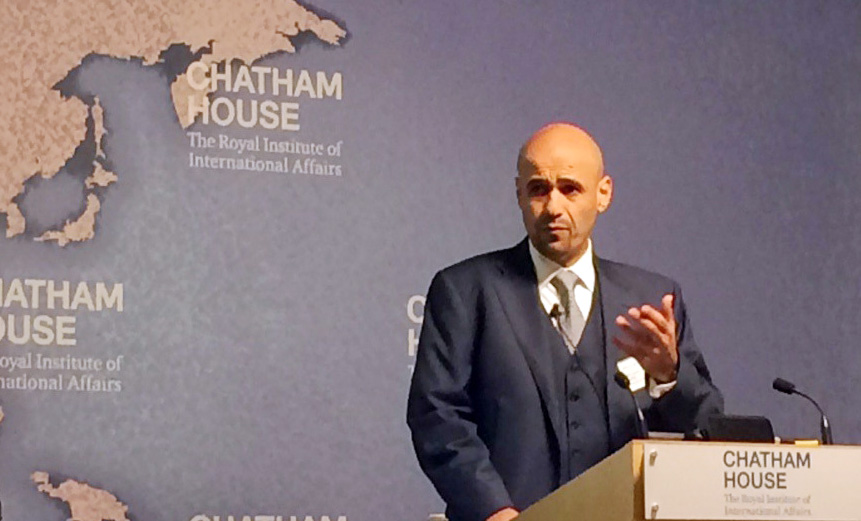LOC21:24
18:24 GMT
 Deputy Prime Minister and Minister of Finance Anas Al-Saleh
Deputy Prime Minister and Minister of Finance Anas Al-Saleh
LONDON, June 8 (KUNA) -- Kuwait 2035 vision aims to turn the country into a regional financial and commercial hub, Deputy Prime Minister and Minister of Finance Anas Al-Saleh has said.
This vision envisages the execution of various mega projects such as new cities, rail and subway networks, and other infrastructure and services projects at a total cost exceeding USD 100 billion, Minister Al-Saleh said during a conference organized Sunday by London-based Royal Institute for International Affairs (Chatham House).
The minister said nearly half of these projects will be implemented by private sector companies.
The government has been reforming legislations over the past years to encourage local and foreign investments, he said.
He shed lights on the government decision to establish a national fund for supporting and developing small and medium-sized enterprises (SMEs).
The fund, for which the government allocated KD two billion (USD 6.6 billion), would offer finance to entrepreneurs that covers up to 80 percent of enterprise cost at a maximum of KD 500,000 (USD 1.65 million), Al-Sabah clarified.
He, furthermore, noted that the government has set up the Kuwait Direct Investment Promotion Authority (KDIPA) in 2013 to improve the investment environment and encourage productive and competitiveness direct investment.
Kuwait seeks to diversify national economy and income resources away from the petroleum industry, to ameliorate the economy, and upgrade income and living standards of Kuwaiti people, he added.
The minister admitted that the government needs to take some brave reforms to address imbalances in the national economy.
In a statement to KUNA following his participation in the conference, Al-Saleh said that the main challenge facing Kuwait and the region is encouraging young people to have their own businesses.
The private sector has to take the initiative to employ fresh graduates who enter the labor market in the coming years, he argued.
Commenting on the oil prices, the minister forecasted that the price would remain in the range of USD 60 a barrel for the time being.
He underlined the importance of price stability in the future "so that we can prepare and plan to deal with it."
The current oil prices are still low and pose a challenge for the budget, he said, expressing hopes that the prices would go up USD 77 per barrel to help Kuwait avoid a budget deficit in the future.
Unfortunately, all observers believe that reaching this price level is a difficult goal in the current stage, he concluded.
Chatham House's symposium, themed MENA Economies Diversification, Growth and Employment, brought together policy and business leaders to address critical issues on the MENA economic reform agenda.
The debate tackled six main issues related to the MENA economics namely: Political risks, security issues and the impetus behind economic reforms; the balance of public and private sector-driven economic growth; diversification strategies in oil exporting and oil importing countries; development of local skills and local capacity; and the reform process and established social contracts. (end)
kd.mrn.ibi